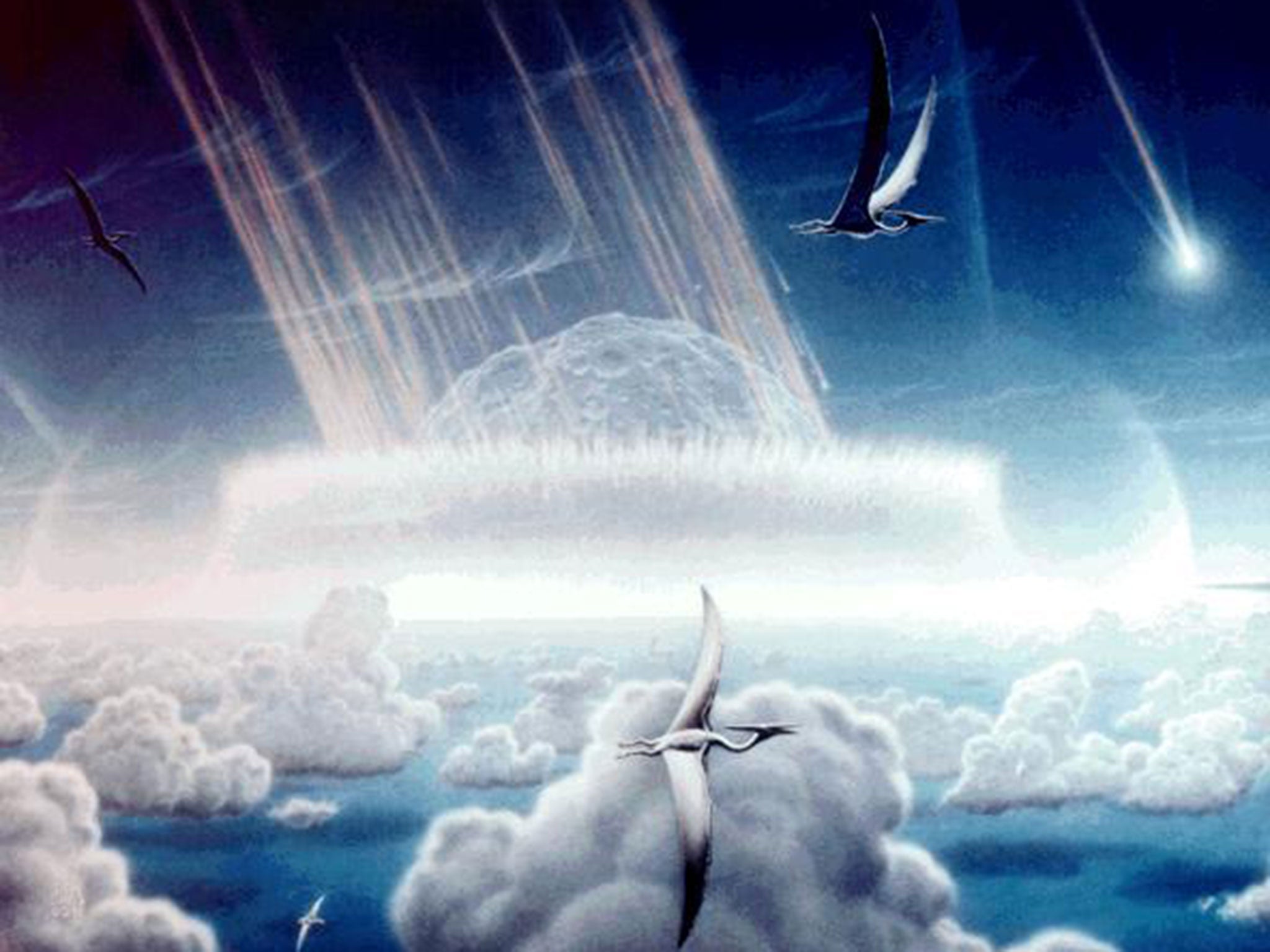Dinosaurs could have survived the asteroid if it landed just about anywhere else, study finds
‘The site of asteroid impact, therefore, changed the history of life on Earth’

The entire history of the world could have been entirely different if the asteroid that wiped out the dinosaurs landed just about anywhere else.
That’s according to a new study that claims there was only a 13 per cent chance that the rock, known as the Chicxulub Impactor, cause the catastrophe that it did. To cause such destruction, it needed to land in just the right place – and it did, exploding and destroying most of life on Earth.
When the asteroid landed on our planet, the impact heated up the organic in matter in rocks and flung it up into the atmosphere, where it formed soot. That soot caused global changes to the climate that turned the Earth into a hellscape and brought about the mass extinction of dinosaurs and other animals.
But that only happened because the rock landed in the right, or wrong, location, dropping onto areas rich in hydrocarbon. Those areas only covered 13 per cent of the Earth’s surface, meaning that if it had dropped on most other places in the planet the dinosaurs would have been much safer.
To come to their findings, the researchers from Tohoku University used a model to calculate how much soot there was in the atmosphere and understand the climate changes that it kicked off. That helped them understand how some animals went extinct and others survived.
They found that if the rock had landed in an area less rich in hydrocarbons, there would have much fewer extinctions. And so the dinosaurs would have carried on living, long before the era in which they went extinct.
“The amount of hydrocarbon and sulfur in rocks varies widely, depending on location, which suggests that cooling and extinction levels were dependent on impact site,” the researchers write in the new paper published in Nature. ”Here we show that the probability of significant global cooling, mass extinction, and the subsequent appearance of mammals was quite low after an asteroid impact on the Earth’s surface.
“This significant event could have occurred if the asteroid hit the hydrocarbon-rich areas occupying approximately 13% of the Earth’s surface.
“The site of asteroid impact, therefore, changed the history of life on Earth.”
Join our commenting forum
Join thought-provoking conversations, follow other Independent readers and see their replies
Comments